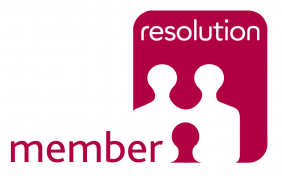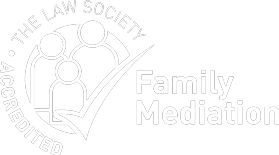“We disagree on vaccinating our child”
Many experts are calling for children over the age of 12 to be vaccinated against Covid-19 ‘as soon as possible’. That’s in order to achieve herd immunity against the Delta variant. And while this may be an important step in protecting the population and keeping youngsters in school, it will raise strong feelings and concerns for many families.
One potential problem I foresee is where parents have opposing views about whether or not their child should be vaccinated. This isn’t a new issue; some families will have wrestled with this when it’s come to inoculations like the MMR. People have different views, and that’s life. But that simple fact doesn’t make the situation any easier for parents to deal with – particularly when there may be time constraints that mean a decision one way or the other has to be made within a window of opportunity.
Add to that the difficulties that come when parents are no longer together and the situation may become more complex and potentially even harder to resolve. Given that parental consent is needed for a child’s vaccination, what should families do when one parent is fixed on a particular course of action and the other on another?
The first thing to establish is who has parental responsibility for the child. This is the legal term for the rights, duties, powers and responsibilities that a child’s parent has in relation to him or her. Parental responsibility enables decisions to be made about day-to-day things like how the child should be disciplined, as well as about the school he or she should attend, and medical treatment that should be given (and much more). It’s effectively about the way a child is brought up and taken care of, and so it would include decisions about vaccinations.
While both parents tend to act as though they have parental responsibility, they may not. A mother automatically has parental responsibility. A father has it if: (a) he’s named on the birth certificate; or (b) he was married to the mother when the child was born, or went on to marry her. A father can also apply to the court for parental responsibility. (And the court can remove parental responsibility if that would be in the interests of the child’s welfare.)
Where only the child’s mother has parental responsibility, then technically, it’s her decision that counts (although, ideally, parents would agree on the way forward). Where both parents are entitled to a say in whether or not their child should be vaccinated against Covid-19, opposing views can make for a difficult conversation. But that has to be the starting point. Whether you and your partner are married, cohabiting, separated or divorced, talking with each other about your thoughts, fears and concerns is so important. Helping the other parent understand your point of view, and being prepared to see things from their perspective too, can sometimes lead to an agreed way forward.
Where there are tensions in a relationship, and particularly where separated parents are on difficult terms, a calm conversation that offers each of you a fair chance to have your say may seem impossible. That is where the help of an independent third party can be invaluable. In fact, Family Law mediation offers a really sound way of parties arriving at a solution they’re happy with, without the acrimony that often rises to the surface when former partners attempt to reach agreement by themselves.
I am a mediator and I’ve helped with all sorts of family issues, from child contact arrangements to financial settlements on separation and divorce. I’m anticipating being called on to work with parents on many issues over the coming months including any potential disagreements should the government decide to roll out Covid vaccinations for children.
Because ‘best interests’ must be the focus, whichever route you take to get a decision made. While parents may have their own views on vaccinations, and the Covid-19 vaccination in particular, they must remember that they are making this decision for their child. A full and frank discussion, overseen by a mediator, about what would and wouldn’t be in their child’s best interests should help each parent see things clearly – and it could even change one parent’s position completely.
For advice about anything I’ve touched on here, including mediation as a way of resolving Family Law issues, please get in touch on 020 3811 2894 or at [email protected].











